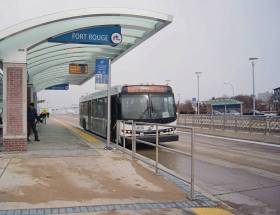Jamming up illegal drug traffic is her job Sgt. Michelle Bacik, who leads the WPS drug enforcement unit, recently sat down with the Free Press
Read this article for free:
or
Already have an account? Log in here »
To continue reading, please subscribe:
Monthly Digital Subscription
$0 for the first 4 weeks*
- Enjoy unlimited reading on winnipegfreepress.com
- Read the E-Edition, our digital replica newspaper
- Access News Break, our award-winning app
- Play interactive puzzles
*No charge for 4 weeks then price increases to the regular rate of $19.00 plus GST every four weeks. Offer available to new and qualified returning subscribers only. Cancel any time.
Monthly Digital Subscription
$4.75/week*
- Enjoy unlimited reading on winnipegfreepress.com
- Read the E-Edition, our digital replica newspaper
- Access News Break, our award-winning app
- Play interactive puzzles
*Billed as $19 plus GST every four weeks. Cancel any time.
To continue reading, please subscribe:
Add Free Press access to your Brandon Sun subscription for only an additional
$1 for the first 4 weeks*
*Your next subscription payment will increase by $1.00 and you will be charged $16.99 plus GST for four weeks. After four weeks, your payment will increase to $23.99 plus GST every four weeks.
Read unlimited articles for free today:
or
Already have an account? Log in here »
Hey there, time traveller!
This article was published 08/07/2022 (1249 days ago), so information in it may no longer be current.
There are good days and a lot of not-so-good days on the job for members of the Winnipeg Police Service.
This, however, was a great day. If someone had to put a price on it, the tag would have read $2.3 million.
That was the value of the cash, jewelry, cocaine and crack, along with affidavits for 10 property seizures and nine bank accounts laid out on a display table at the downtown police HQ for the media to document. Elsewhere, there was a loaded gun, a pricey German vehicle and a skid-steer piece of construction equipment.
The WPS drug enforcement unit, former spokesman Const. Rob Carver said that morning in April 2021, had arrested 26 people — 14 of whom had been charged with more than 100 crimes — in a huge Point Douglas bust produced by several months of wiretap surveillance and dogged investigative work by the relatively new team led by Sgt. Michelle Bacik.
Working two shifts with 12 additional officers pulled from elsewhere in the force, the 10-person unit of full-time drug-trafficking investigators had been working on the case since October 2020.
The target, alleged drug lord Sandra Guiboche, had previously been arrested and sentenced for possession, but now she stood accused of leading a crack cocaine ring that gripped the inner-city neighbourhood for 17 years. The slew of charges against her are still pending, court records show.
Longtime area activist Sel Burrows called their work “just wonderful” at the time.
Bacik, who has led the unit for the past 3 1/2 years, sat down recently with the Free Press for a wide-ranging interview about changes in the illicit drug scene in Winnipeg, police enforcement tactics and evolving priorities, along with the societal implications of drugs and addiction.
“We tackle something like (the Point Douglas operation),” the 23-year veteran officer said. “And then… some investigations are two weeks long.”
The unit was formed as part of the illicit drug strategy the WPS implemented at the beginning of 2018.
“We will get community complaints, we will get information perhaps from other units, we will get anonymous pieces of information, and then… develop an investigation.” – Sgt. Michelle Bacik
“We will get community complaints, we will get information perhaps from other units, we will get anonymous pieces of information, and then… develop an investigation,” said Bacik, who spent 11 years in the organized-crime unit before moving to her current role.
WPS brass saw a need to adapt the unit’s focus to include education — from talking to business owners, community groups and the Addictions Foundation of Manitoba — and intervention, including working with the province’s drug-treatment court.
“When I look at that piece of it, I’m proud of the service — that we’ve been able to be flexible, to understand that it’s a multi-pronged approach,” Bacik said.
“It’s like, all hands on deck; we all have to get involved to help (address) the drug trade, because we need to provide treatment for the users who are wanting that drug, because it’s all about supply and demand.”
The strategy targets traffickers rather than users.
“We look at, ‘how do we help those users,’ and we focus the enforcement on higher-level traffickers.” – Sgt. Michelle Bacik
“We focus on the people who are drug trafficking, the people who are victimizing our community with these substances, and I’ve worked a lot of investigations where, for them, it’s making money — it causes a lot of problems in the city,” Bacik said.
“We look at, ‘how do we help those users,’ and we focus the enforcement on higher-level traffickers.”
Help like a recent alert to drug users via media channels about the powerful synthetic opioid fentanyl (connected to 231 fatal overdoses in the province last year alone) seized in a June bust contained carfentanil, a 100 times more powerful analogue of the drug, and an unspecified benzodiazepine tranquilizer. Reversing the effects of an overdose involving a benzodiazepine is much more difficult, the alert stated, warning people not to take the drug when they are by themselves.
Bacik said she couldn’t reveal many specifics of the unit’s work in order to protect of the integrity of its tactics, but said investigations can include wiretaps, surveillance and undercover operations.
Fentanyl is at the forefront of the illicit drug scene in the city, and has been for several years, but there is no shortage of other problems, including methamphetamine and cocaine.
Bacik said the current market for fentanyl reminds her of when meth began to appear on the street. In 2004, when she worked on a previous drug-enforcement unit, a hit sold for for about $50 a “point” — a 10th of a gram — now it’s $5.
Fentanyl and its cocktails that include carfentanil and heroin, now sells at a similar price to what meth used to fetch, from $40-50 a point.
Although technology has changed to include the use of encrypted communications and drones, occasionally, traffickers still use tried-and-true methods on the highway or in the air of getting their product into the province, she said.
High-level trafficking involving product sold in multiple kilograms is typically the domain of large organized-crime networks that transport the drugs over provincial borders and internationally. It then filters to mid-level sellers who deal in ounces, portioning it into points for street-level trade.
Bacik said her work doesn’t focus on street-gang involvement, but noted organized crime in some form has always been linked in one way or another.
“We are educating people, we are doing our best with the intervention piece as well, but our priority is still enforcement– we can’t just throw up our hands and give up.” – Sgt. Michelle Bacik
“A lot of times, you might have someone who’s an independent trafficker, but they still have connections,” she said.
Violence, too, is ever-present in the underground, cash-only business.
“Any of our investigations, if there’s violence, that’s where we may get more officers involved and sometimes the investigation may switch gears… that will become priority,” she said.
And while the reality is that taking down an operation — even one as significant as the Point Douglas seizures suggest that one was — will have, at best, a temporary effect on street supply, the work has to continue, she said.
“As police, we’re here to do everything we can for the community, and I believe that 100 per cent,” she said.
“We are educating people, we are doing our best with the intervention piece as well, but our priority is still enforcement — we can’t just throw up our hands and give up. You have to keep doing what you’re doing and hope that you’ve made changes.”
erik.pindera@freepress.mb.ca
Twitter: @erik_pindera

Erik Pindera reports for the city desk, with a particular focus on crime and justice.
Our newsroom depends on a growing audience of readers to power our journalism. If you are not a paid reader, please consider becoming a subscriber.
Our newsroom depends on its audience of readers to power our journalism. Thank you for your support.
History
Updated on Friday, July 8, 2022 7:32 PM CDT: Clarifies fentanyl and carfentanil numbers







